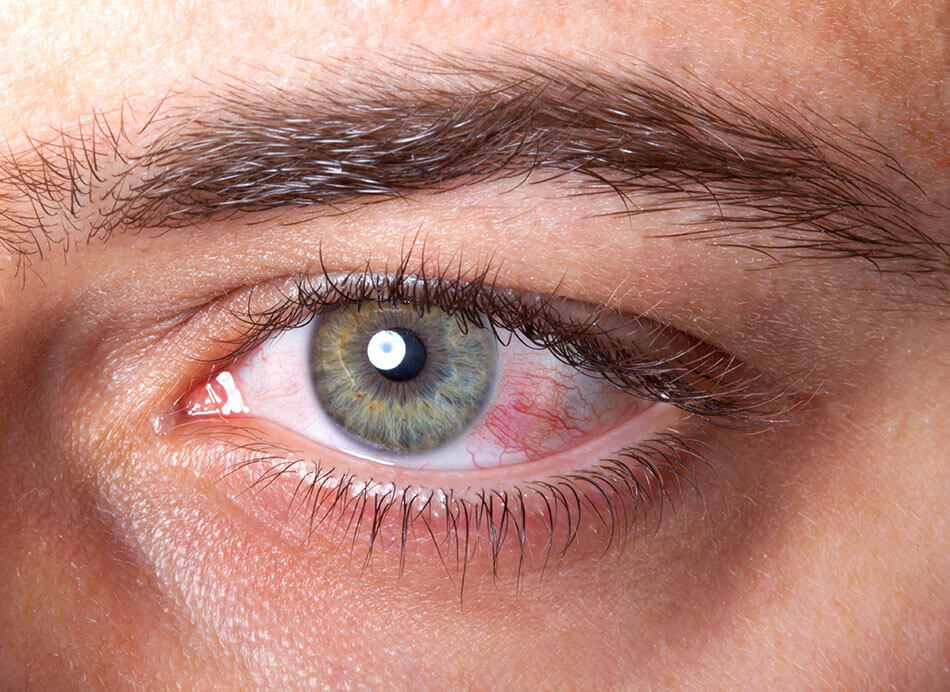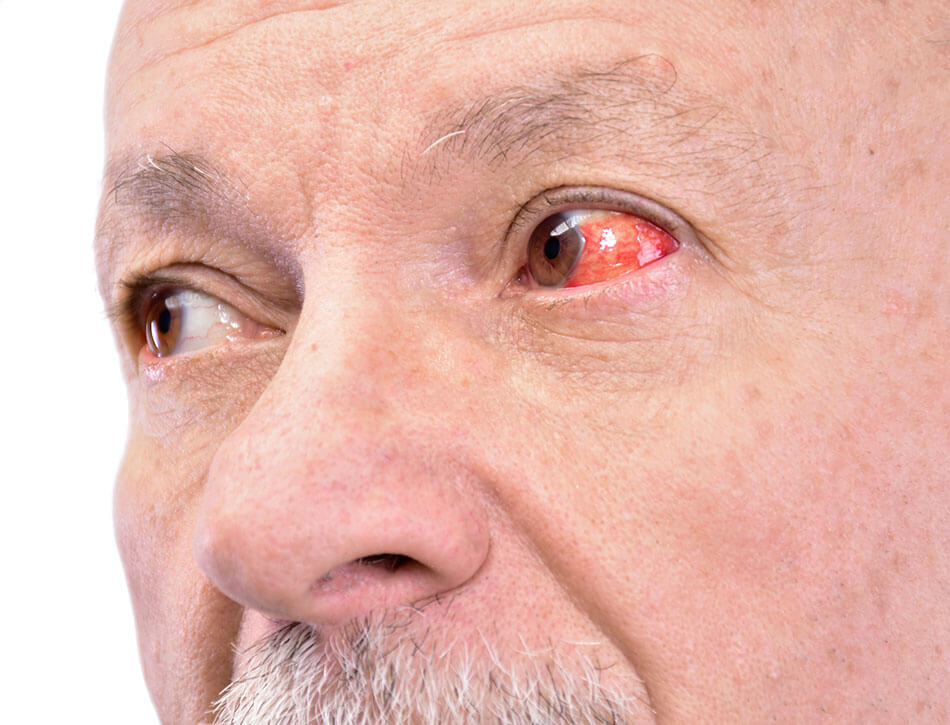Why Are My Contacts Blurry? How to Fix 5 Common Contact Lens Problems
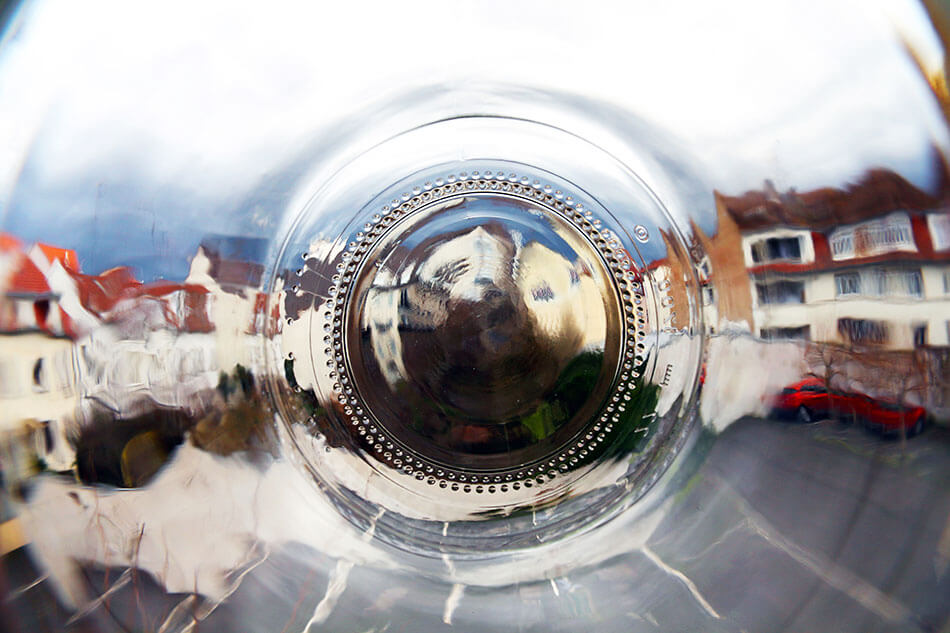
If you’re one of the 45 million Americans who wear contact lenses, you may be asking yourself: "Why are my contacts blurry?" There are some common issues that can affect the clarity of your vision while wearing contacts.
Before we go over the problems that could cause your contacts to be hazy, it’s important to note one thing. Hygiene is a major factor to consider when it comes to contact lenses. Even a small eye infection resulting from contact lens misuse could eventually lead to blindness if left untreated. By following the directions for your contacts, you can reduce the risk of eye problems.
Now, let’s cover five of the most common conditions that can make contact lenses blurry.
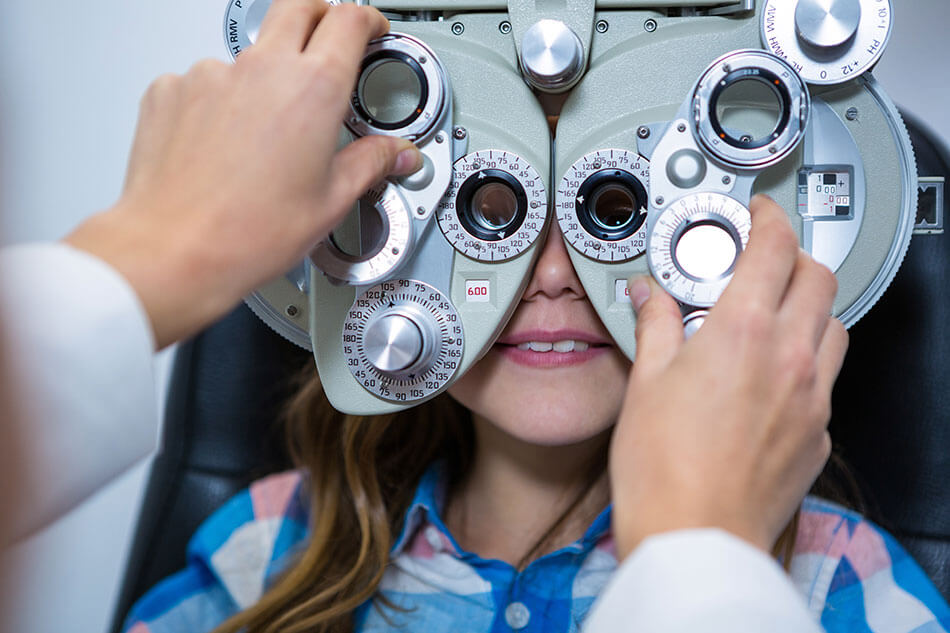
1. A New or Incorrect Prescription
Our eyesight changes naturally over time. If your contacts feel off or your vision seems blurrier than usual, it may be time for a new prescription.
Always schedule regular eye exams and report any sudden vision changes to your doctor. Symptoms like halos around lights are not always alarming, but rainbow-colored halos can indicate corneal edema, which needs medical attention.
Track your symptoms, note the time of day they occur, and share these details with your eye doctor to help identify the root cause.
2. Dry Contact or Dry Eye
How long are you leaving your contacts in for? Prolonged use of contact lenses can prevent proper tear formation to keep your eyes moist. While contacts might not cause this dryness, they can certainly worsen dry eye symptoms. Should you feel irritation or itchiness in your eyes, remove your contacts to give them a break.
If the problem persists, your eye doctor can find a solution for you. Artificial tears or a different kind of contact lens might be more comfortable and ease your dry eyes.
There are so many options for contact lenses nowadays that you should be able to find ones that work for your lifestyle. If you're using long-term or daily disposable contacts, make sure you're following directions to the letter. Doing so will help reduce the risk of dry eye or other issues. Plus, it will give you the clear vision you’re looking for.
3. Movement or Rotation of Lenses
Sometimes, blurry vision has a simple cause. Your contact lenses can shift, causing blurring in your sight. If you have astigmatism, you can ask your eye doctor about improving the fit of your lenses.
When your eyes or contact lenses get too dry, your contacts can get stuck to your eye. This might also be the case if you sleep with your contacts on. If you wake up with hazy vision, you should remove your lenses immediately. Tilt your head back and see if the contact is stuck to your eyelid. Add some saline solution to your eye to loosen the lens and remove it.
If you frequently wake up to blurred vision, make sure you remove your contact lenses before you go to bed. Wear your glasses as much as possible and try another brand of contacts. You might find that different lenses won't move as much or cause blurriness.
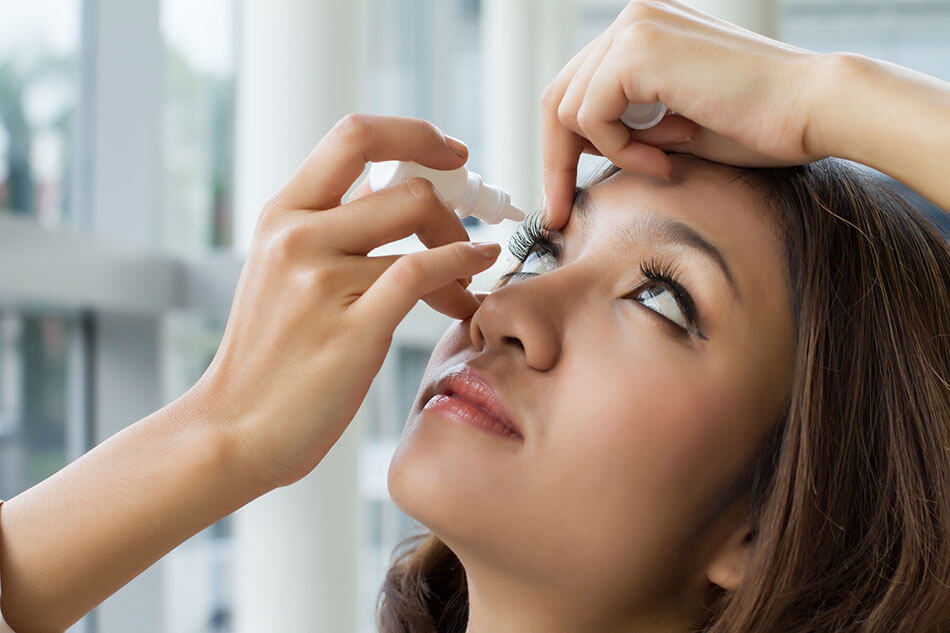
4. Deposits on the Lenses
Over time, protein deposits, oils, and debris can accumulate on lenses, especially if they’re worn past their replacement schedule. This buildup leads to hazy vision and can increase the risk of infection.
Follow the recommended wear schedule for your lens type:
- Daily disposables: Replace after one use
- Weekly or monthly lenses: Clean and store properly, and replace as scheduled
If you experience persistent blurriness even after replacing your lenses, give your eyes a rest for a day and wear glasses to allow natural tear production to clear out any remaining residue.
5. Conjunctivitis or Corneal Abrasion
Are you waking up with your eyes fused shut? Are they leaking fluid that sort of looks like pus? Is your entire eye pink? You might have conjunctivitis, also known as pinkeye.
You might have gotten this infection from handling your contacts with dirty hands. If you've got discharge and blurry vision, try holding a clean, warm washcloth over your eyes. Do this for a few minutes several times a day. If symptoms persist, you may need to contact your physician.
Corneal abrasions are common, occurring when something sharp gets between your contact lens and your eye. It can be anything from a grain of sand to a tiny piece of glass. The problem with corneal abrasions is that they can lead to corneal ulcers if not treated properly. This can lead to severe and permanent loss of vision.
If you have blurred vision coupled with pain or discomfort, remove your contacts immediately and make an appointment with your doctor.
How to Prevent Blurry Contact Lenses
Even though blurry contacts can be caused by many factors, most problems can be avoided with simple care habits.
Here are some easy prevention tips:
- Wash your hands thoroughly before handling contacts.
- Never reuse or extend wear past the recommended time.
- Keep lenses clean with fresh solution each day (if not using dailies).
- Stay hydrated and blink often, especially during screen time.
- Avoid sleeping or showering with your lenses in.
- Replace your lens case every 3 months to reduce bacteria buildup.
These small changes can dramatically improve comfort and clarity when wearing contact lenses.
When to See Your Eye Doctor
If your vision remains blurry even after cleaning or replacing your lenses, don’t ignore it. Blurriness can indicate an underlying issue like dry eye disease, keratitis, or corneal swelling.
Schedule an appointment if you notice:
- Persistent foggy or double vision
- Light sensitivity or eye pain
- Redness that doesn’t go away
- Discharge or excessive tearing
Your doctor can determine whether your contacts, prescription, or eye health are the cause — and help you find a comfortable, clear solution.
FAQ: Common Questions About Blurry Contacts
Why are my contacts blurry when I first put them in?
They may be inside-out, dirty, or have a tear. Always inspect them before insertion and rinse with saline solution.
Can dry eyes make my contacts blurry?
Yes. Dry eyes reduce the tear film needed for clear vision. Try rewetting drops or switch to a lens made for dryness relief.
Is it normal for one contact to be blurry?
No. This could indicate a fit issue, deposit buildup, or a prescription error. Replace the lens and see if the problem persists.
Can old lenses make my vision cloudy?
Yes. Expired or overworn lenses can cause deposits, dryness, and infection risk — always replace them as directed.
When should I see a doctor?
If blurriness continues for more than a day or comes with pain, redness, or discharge, remove your lenses and contact your eye doctor immediately.

